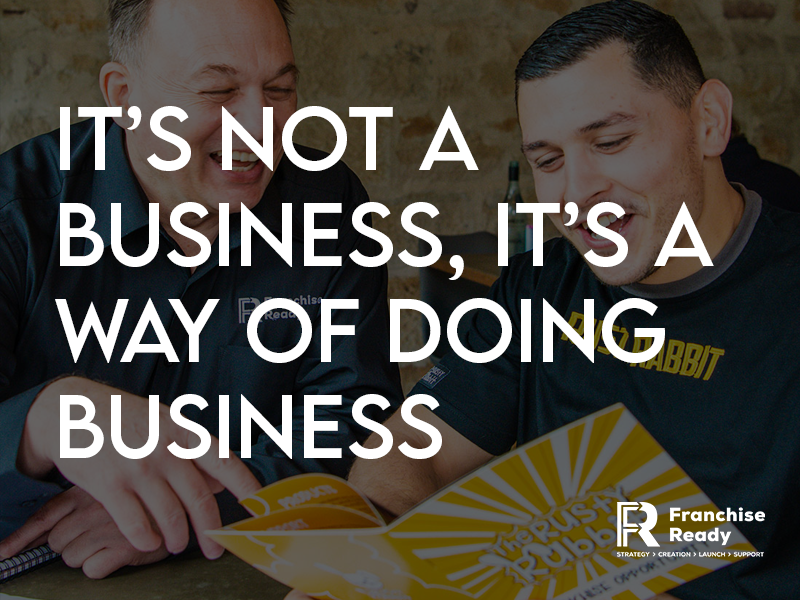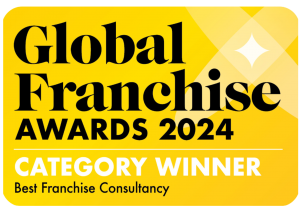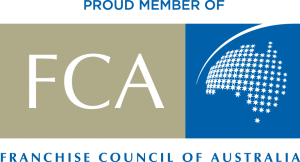What Is Franchising?
“With a franchise, you have someone who cares as much about the business
name and image as you do because they own it”
—Jim Evanger
WHAT IS FRANCHISING?
Have you ever heard the term ‘disenfranchised’ and wondered what it meant? Every time I hear
that someone is disenfranchised, I cringe. It is used out of context and relates to a feeling of
disappointment that someone may have with their circumstances or a reaction to something they
are experiencing.
It’s at this time it makes me think about what a franchise is.
To be disenfranchised means to have your legal rights taken away from you. Therefore, to have a
franchise means the granting of legal rights. In the case of business, it means the right to use
intellectual property that has been developed by an individual through a company. That company
can license the rights for an individual or entity to use the system that they have developed.
The concept of franchising is not new. It’s been around since the Middle Ages when the
government gave licenses to churches and local council to collect taxes, and for medieval lords to
grant rights to individuals to sell their wares and produce.
In 1731, when Benjamin Franklin expanded his print shop business and newspaper production to
additional locations, he granted the rights for individuals to use the systems and processes that he
had developed and perfected. In so doing, he charged them a fee for these rights.
Franchising is not a business but a way of leveraging the systems, processes, and intellectual
property that has been developed and perfected to ensure a smoother transition into a business.
Ray Kroc didn’t invent it, but he took it more seriously than anyone else.
THERE ARE THREE TYPES OF FRANCHISE MODELS
Manufacturing Franchises: used by organisations such as Coca-Cola where a license is issued to
another party to make their product.
Coca-Cola’s franchising system dates back to 1889 when bottling rights began to be sold to
businessmen who were capable of large-scale bottling, and thus were able to quickly expand the
product into new markets. One of the early ‘brand standards’ set for the system was an agreement
by the bottlers to only sell the product in a standard and unique ‘contour’ bottle, patented in 1915.
These were in fact one type ‘money bottles’ I used to collect and return for recycling payment back
in the 1970s.
The Coca-Cola Company produces syrup concentrate, then sells it to bottlers around the world,
who hold an exclusive territory to bottle and sell the end product. These bottling partners
manufacture, package, and distribute the finished product to vending partners, who then sell
directly to consumers.
Product Franchises: used by organisations such as Ford Motor car, who issue them to dealers to
sell their cars.
Or as we have seen more recently, movie and television ‘franchises’ follow a formula and are
owned by a group that licenses the rights to produce and screen the productions.
Almost every professional sporting competition in the world includes franchises, where sporting
teams are granted the license to operate within a geographical territory. This has been very
common in the USA, with baseball franchises being granted in 1876 and every NFL Gridiron
team, NHL hockey team, or NBL Basketball team operating a franchise issued by their governing
body.
Business Format Franchising: this is the most common form of franchising, where a highly
recognised and branded outlet is franchised to a franchisee for them to operate under strict
conditions for a fixed term.
Familiar brands that use a business format franchise approach include the majority of the bricks
and mortar operations, like McDonald’s and KFC.
Current Day Franchising
We have experienced some turbulent times with franchising in Australia with parliamentary
enquiries into the sector. It seems to see negative press on a weekly basis, but these challenges are
not exclusive to Australia, with similar challenges globally. The thing is, the stories are headline
grabbing and often one sided.
The problem is not franchising per se, but a minority of individuals who happen to be in some
high-profile franchise organisations. They have done the wrong thing, and this is causing
aspersions to be cast on the franchise sector as a whole.
The process of franchising is sound but it’s important to understand that franchising is not a
business — it’s a way of doing business.
It’s important to understand a little more about what franchising is other than its origins or the
core principles of it being a license to use the systems and processes of a developed brand.
Marketing Strategy
Franchising is a business strategy for getting and keeping customers. It is a marketing system for
creating an image in the minds of current and future customers, of how the company’s products
and services can help them. It is a method for distributing products and services that satisfy
customers’ needs.
Interdependence
Franchising requires interdependence, where both the franchisee and franchisor have needs to be
met.
Interdependence is working within the confines of the requirements of the franchisor, for the
mutual benefit and consistency of all other franchisees within that system. There is also a
dependence on the franchisor to provide leadership, development of the brand, and support of
the franchisees.
Dependence is part of any franchise relationship, as the franchisee relies on the franchisor to guide
them towards success. But the system alone will not guarantee success. It is up to each franchisee
to make the system work for them, and in turn they need to work for, and within, the system.
Independence is ignoring others and any coexistence, wanting to deal with everything alone, and
not acknowledging any need for support. Often, franchisors are largely independent operators
who want to run their own show. Independent individuals make good franchisors, but not
necessarily good franchisees.
Franchising is a network of interdependent business relationships that allows a number of people
to share:
- A brand identity
- A successful method of doing business
- A proven marketing and distribution system
- A product or service that is differentiated from the competition
In short, franchising is a strategic alliance between groups of people who have specific
relationships and responsibilities, with a common goal to dominate the markets that they operate
within.
There are many misconceptions about franchising, but probably the most widely held is that a
franchisee is ‘buying a franchise’. In reality, the franchisee is investing their assets in a system to
utilise the brand name, operating system, and ongoing support. Every franchisee in the system is
licensed to do this.
If a franchisee was in fact ‘buying a franchise’, they would most likely feel entitled to operate the
business the way they would like and would make entrepreneurial decisions about their business
that may contradict how the franchisor needs the business to be run.
The key to the success of any franchise system starts with the premise that the franchisor does not
sell franchises; they grant the rights for individuals to use the intellectual property of the brand.









